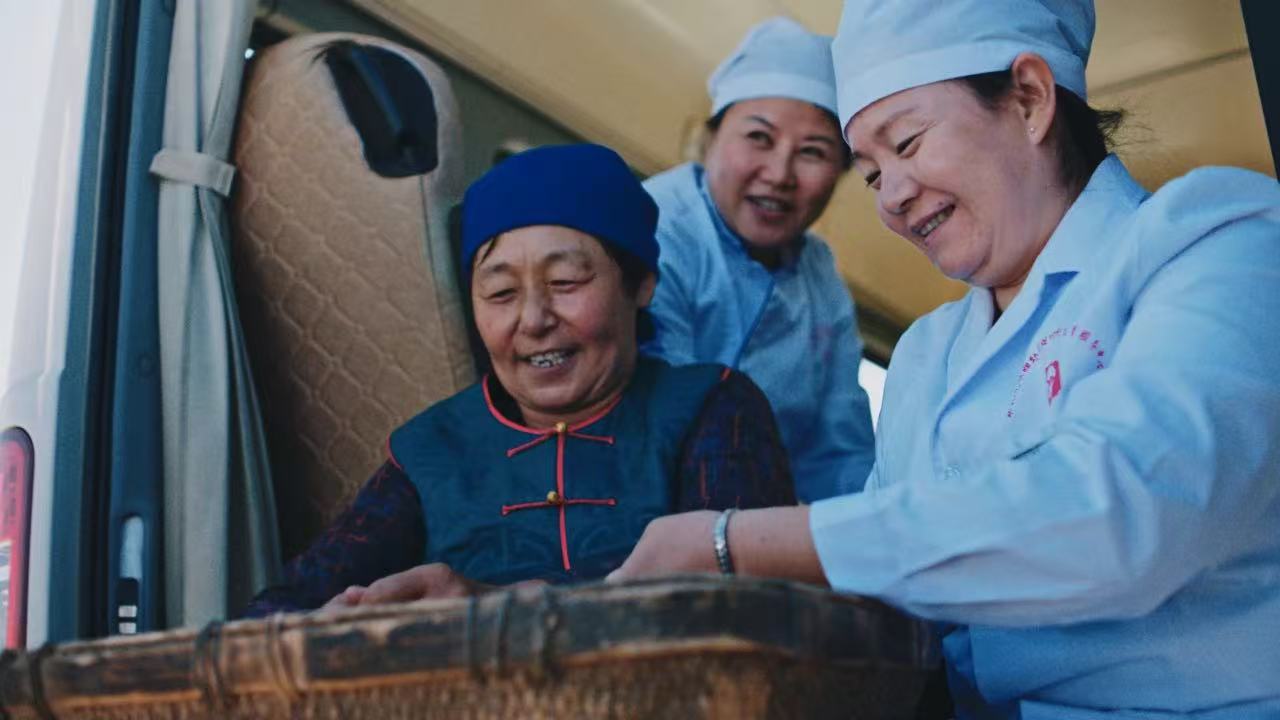The Red Umbrella Program: Powering Cancer Prevention Digitally
A project manager for the cancer screening program at the Maternal and Child Health Hospital in China’s Sichuan Province, Dr. Bai has seen too many cases of cervical and breast cancer among women in remote areas. Screening and early treatment are crucial to survival rates, but these women don’t always have ready access.
In an effort to address the problem, Tencent launched a 150 million RMB (US$21 million) initiative in 2023, the Red Umbrella Program, to support breast and cervical cancer diagnosis and prevention. The project aims to benefit one million women.

Making Tech Work for Rural Women
Breast cancer and cervical cancer rank as the second and fifth most common cancers among women in China. Cervical cancer is often considered a disease of poverty, as it disproportionately affects low-income and low-resource populations.
By building a comprehensive digital management platform, Tencent has connected every stage of the screening process — from patient registration and recording test results to follow-up care. This system ensures a seamless data flow between stages, minimizing the administrative workload for healthcare providers and enhancing service efficiency. Streamlining these processes makes screening and treatment more accessible and cost effective for women in need.
The Red Umbrella Program has achieved remarkable results since its launch in 2023:
- Reached over 200,000 eligible women across 31 counties in 7 provinces
- Reduced repeat screening rates to below 2%
- Cut patient recall communication time from 30 minutes to 3 minutes
- Shortened testing result delivery time from two weeks to one day
In recognition of the Red Umbrella Program's impact, Tencent was recently awarded the Best Poverty Reduction Practices in the Fifth Call for Global Solicitation by the International Poverty Reduction Center in China (IPRCC), which was co-initiated with organizations such as the World Bank (WB) and the Food and Agriculture Organization of the United Nations (FAO).

Intelligent Screening and Medical Training
To overcome infrastructure challenges in healthcare for women in remote areas, the Red Umbrella Program focuses on the following core efforts:
- Making screening a habit: Mobile vans were deployed to remote areas during large gatherings and holidays to provide screenings and normalize routine cancer checks. Travel subsidies support financially disadvantaged women, and a two-way system connects local facilities with higher-level healthcare institutions, reducing travel burdens and costs for the community.
- Digital management platform development: Traditional screening methods often rely on paper records, complicating patient tracking and leading to repeat screenings. The Red Umbrella Program leverages Tencent's connectivity to create a digital platform that integrates registration, result entry, and follow-up management. This streamlines administrative tasks for healthcare providers.
- Support for local doctors: There’s a shortage of pathologists in community hospitals. Higher-sensitivity HPV nucleic acid screening technology is here to help. An electronic colposcopy diagnostic system, developed using Tencent's AI technology, makes it easier for local doctors to quickly identify potential concerns and offers real-time diagnostic recommendations.
- Creation of an intelligent training platform: The Red Umbrella Program collaborates with top medical schools and industry experts to deliver training. An Intelligent Colposcopy Training System, designed in a gamified format, uses AI to offer personalized skill assessments for local doctors and provide targeted training based on their individual needs.
Aiming for Global Targets
The Red Umbrella Program aligns with the World Health Organization’s (WHO) 90-70-90 targets for eliminating cervical cancer by 2030. The goal is to vaccinate 90 percent of girls against HPV, screen 70 percent of women, and treat 90 percent of those with precancerous lesions. A complementary WHO Breast Cancer Initiative also aims to prevent 2.5 million deaths by 2040 through increased awareness, early diagnosis, and treatment access.
These efforts to advance health equity exemplify Tencent’s commitment to harness technology and product innovation to tackle critical social issues. It demonstrates the power of co-creation with our partners to drive social good and generate long-term solutions. The sustainable healthcare access model developed in resource-limited areas may provide a valuable experience for future global digital health initiatives.


